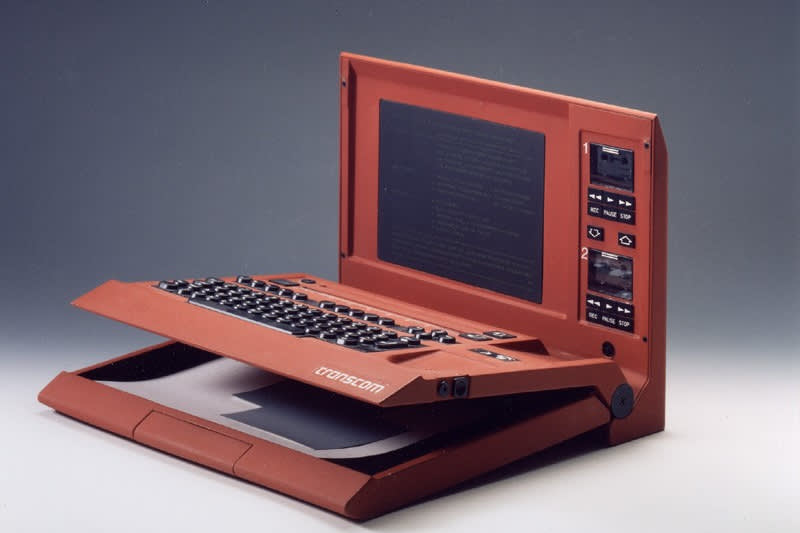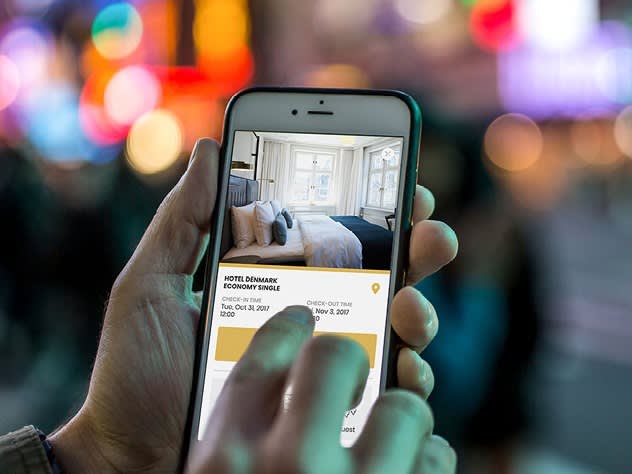Industrial Designer Christoph Böninger: Pioneer of Laptop Design
Sipping a chai latte in a café and sending a few emails or filing the next chapter - nobody had any idea of this modern scenarios in 1982. One student from Munich, however, was thinking a lot about our future of work. Today, he is considered one of the "fathers of the laptop": Christoph Böninger.

A few years before Macintosh launched its first portable computer - the Macintosh Portable - and before other first official "laptops" came out, like the GRID in 1983, iF DESIGN AWARD juror and iF Design Foundation Chairman Christoph Böninger handed in his so called "laptop studies" in his diploma thesis at the University of Applied Sciences in Munich. Many consider the industrial designer the "father of the laptop". Read below why he doesn't view it that way much, about a designer's responsibility and how he finally came to designing furniture.
iF: Christoph, your student thesis in 1982 revolutionized the computer world. In a way, you are also called the inventor and often the "father of the laptop". Do you see yourself as such and what exactly was going on in 1982?
Christoph Böninger: I wanted to develop a design study on a relevant topic for my diploma thesis at the time and the topic of "mobile computing" came up because the UN had proclaimed 1983 the "World Communication Year 1983". From my perspective, the "Grid" from IDEO founder Bill Moggridge was the first real laptop in 1983. It was developed at the same time as my study in 1982, and the topic of "mobile computing" was in the air at the time.
iF: Why did you dedicate yourself to this topic back then? What was your motivation?
CB: The first PCs were entering the office world at the time. And it was foreseeable that the individual hardware components would become ever more compact while the computing power of the chips increased at the same time. So the project was an extrapolation of various foreseeable developments and at the time I actually thought I had designed the first laptop. This was later put into perspective.

First Drafts: Laptop with integrated file compartment
iF: When you look at your laptop studies and modern laptops, how much of your original ideas and approaches do you recognize? And where do you perhaps see potential for improvement?
CB: Quite a lot: large screen, full keyboard, storage media and the possibility of communication, at that time still via telephone modem, because there was no Internet yet. I thought even further: when the computer replaces the office and thus the file folder, the laptop will become the primary device - on the road and in the office. I had therefore designed a removable file compartment for the laptop to replace the classic briefcase.

Computer Suitcase: IBM PS/2 Modell P70 386, 1990
Design history is being written at iF Design! The first laptops were also honored with an iF DESIGN AWARD. We dug deep into our archives and the first - not exactly classic - laptop, but "portable computer" was - literally - a heavy suitcase. The IBM PS/2 model P70 386 was honored in 1990. The IBM PS/2 model P70 was produced from May 1989 to July 1991.
iF: Did you ever suspect back then that we would live in such a digitalized world and that everyone would be carrying around little mini PCs?
CB: I already assumed in 1982 that our professional lives would be dominated by computers, but the Internet and voice over IP were not yet an issue back then.
iF: Today, laptops are indispensable. Especially after the pandemic and with the increase in remote work. How do you see the future of mobile working and the role of designers in it?
CB: I see the task and responsibility of designers today as being to create working and living environments that counteract social developments such as increasing isolation. Mobile working is good, but unfortunately the pandemic has also shown us where this can lead. I believe that the laptop will die out in the future because the keyboard will become increasingly obsolete thanks to voice input and AI.
iF: You have always designed furniture and most recently founded your own label AUERBERG. Can you describe why furniture design was a necessary balance for you?
CB: The design of furniture as a counterpoint to the design of information and communication products has always been important to me. When AUERBERG was founded in 2009, it was its counter-design to a marketing-oriented business model, hence our claim "radically subjective". My friend Michele de Lucchi also inspired me at the time with his concept of "Produzione Privata".
iF: There is a certain "saturation" of products in the world - would you say designers are finding it harder to create real innovations today?
CB: I have difficulties with the term "innovation". But if we replace "innovation" with "progress", then an ethical component is added and this is where designers have a responsibility.
iF: You have been Chairman of the iF Design Foundation since 2018. Your graduation thesis in 1982 was the starting signal for your career. Is that why it is so important to you to focus on optimizing the design education of the next generation?
CB: Over the past 40 years, I have witnessed developments in the design profession that, from today's perspective, were not all positive, such as the 100% fixation of designers on the economic added value of our work for our clients. Design was and must be more than that again: an activity that is oriented towards the common good of society, towards public value. To achieve this, however, the education of students must be reformed and this is where the iF Design Foundation comes in. In 2025, we will publish the building blocks of a future curriculum as a book.
Laptop Design today: Sleek, multifunctional, convertible, light

YogaBook 9i Laptop , Lenovo, iF DESIGN AWARD Gold 2023

MacBook Air, Apple, iF DESIGN AWARD 2023

FMV LOOX Mobile PC, Fujitsu Client Computing Limited, iF DESIGN AWARD 2023

LG gram (15Z90RT), LG Electronics, iF DESIGN AWARD 2023

YogaBook 9i Laptop , Lenovo, iF DESIGN AWARD Gold 2023

MacBook Air, Apple, iF DESIGN AWARD 2023

FMV LOOX Mobile PC, Fujitsu Client Computing Limited, iF DESIGN AWARD 2023




